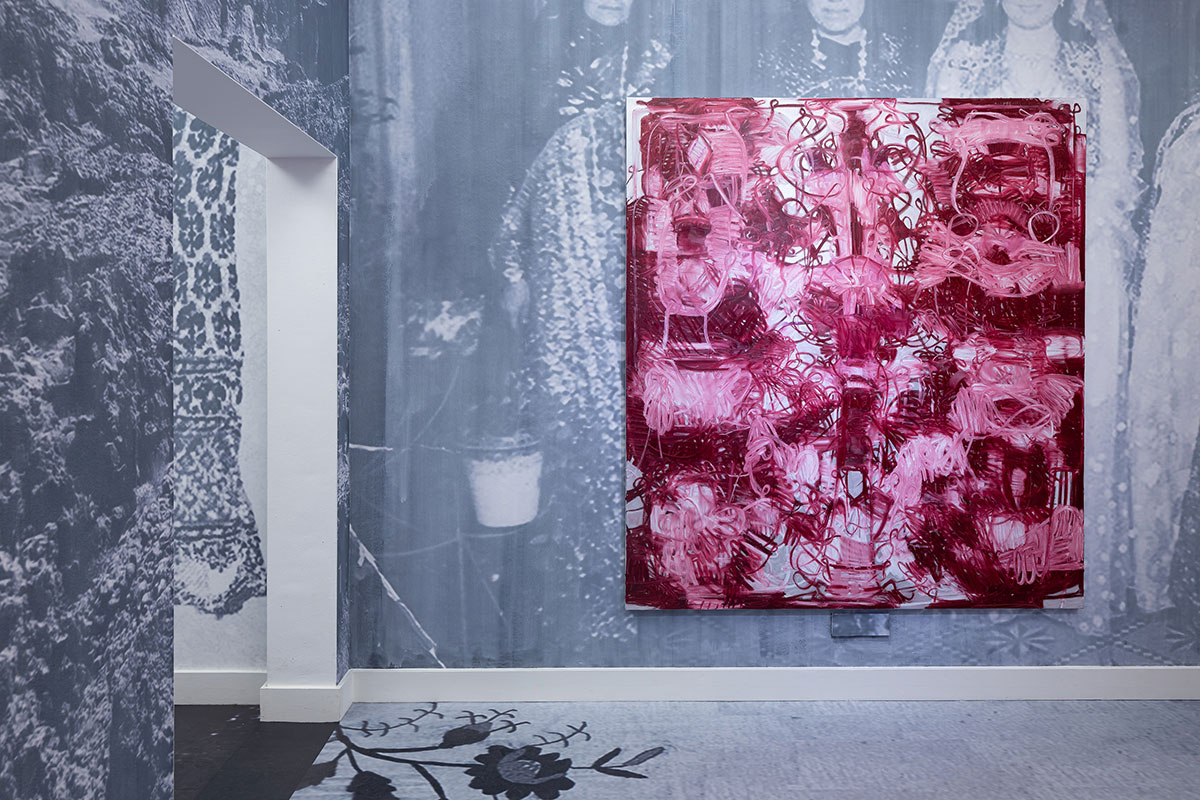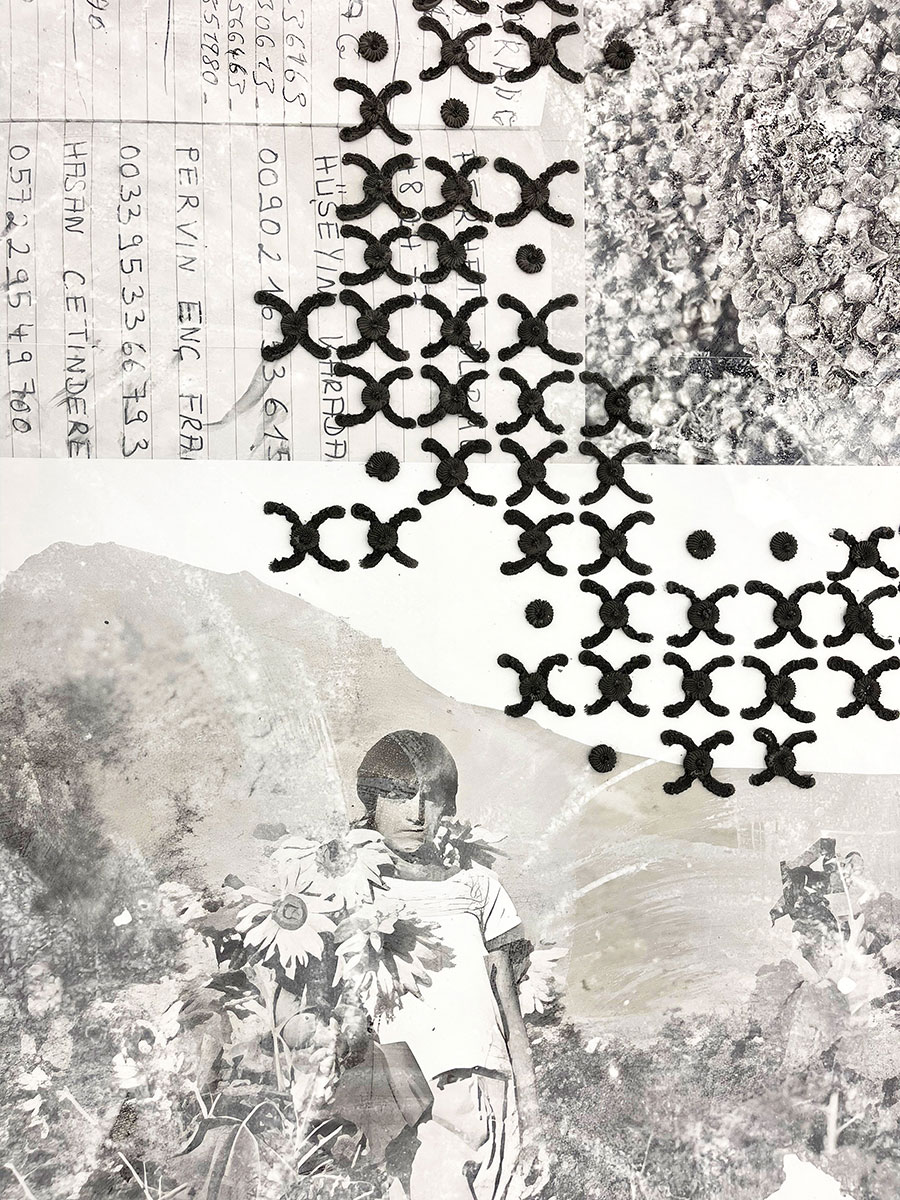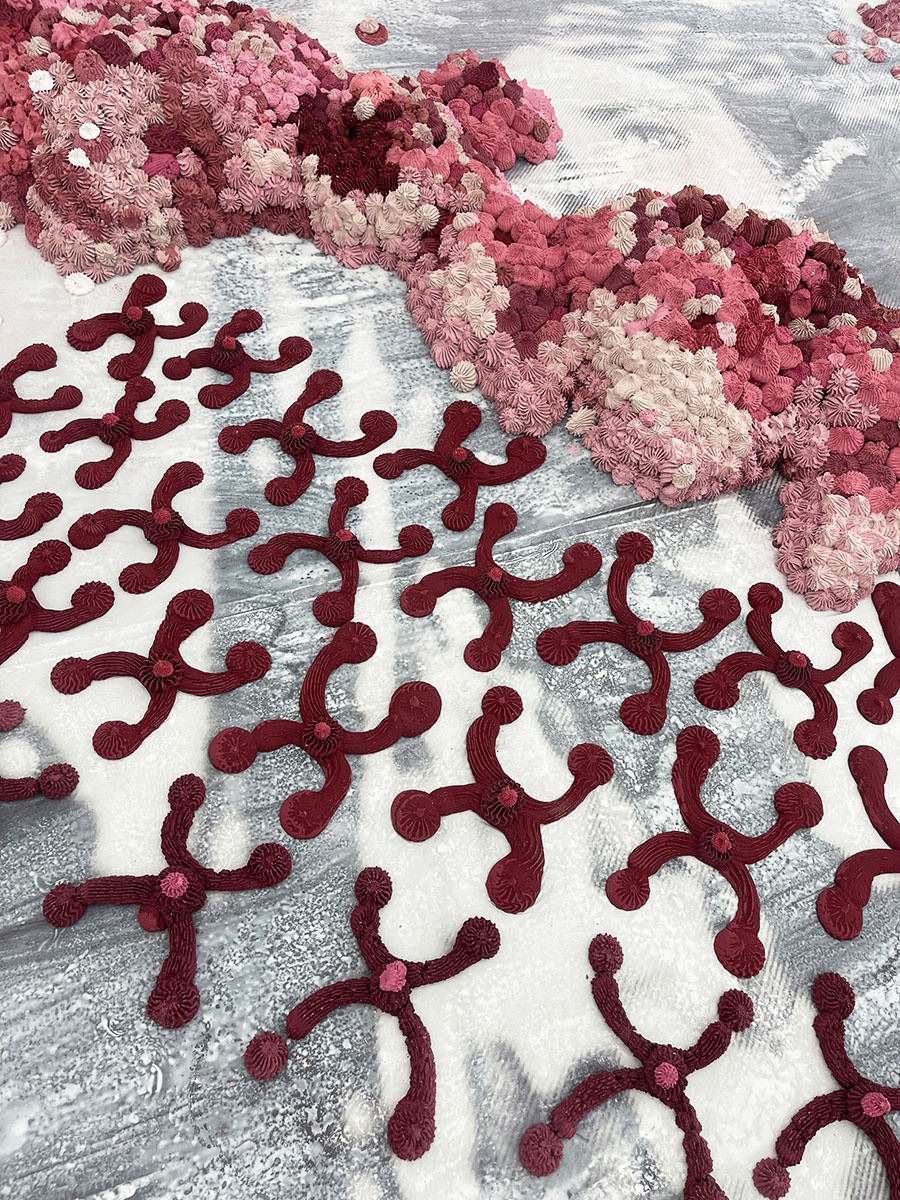ART CITIES: Frankfurt-Melike Kara
 Solidarity, spirituality and rituals, but also displacement and trauma are central themes in Melike Kara’s work, which is dedicated to preserving the culture of the Kurdish diaspora. As an artist of Kurdish-Alevi heritage herself, her work is based on an extensive collection of historical as well as contemporary photographs of intimate moments such as family photos, snapshots of meals, festivities, landscapes, living spaces, photographic portraits and documents that highlight the beauty of everyday culture.
Solidarity, spirituality and rituals, but also displacement and trauma are central themes in Melike Kara’s work, which is dedicated to preserving the culture of the Kurdish diaspora. As an artist of Kurdish-Alevi heritage herself, her work is based on an extensive collection of historical as well as contemporary photographs of intimate moments such as family photos, snapshots of meals, festivities, landscapes, living spaces, photographic portraits and documents that highlight the beauty of everyday culture.
By Efi Michalarou
Photo: Schirn Kunsthalle Archive
Melike Kara creates spaces for remembrance. With an examination of her family roots as a point of departure, Kara’s installations raise questions regarding identity, migration, and visibility. Her solo exhibition “Shallow Lakes”, is an extensive, location-specific work by the artist in the exterior as well as interior space of Schirn Kunsthalle’s Rotunda. Kara’s artistic practice comprises a wide range of media, including sculpture, photo collage, and painting. Taking as a basis her archive of photographs from various private sources, which has been growing continuously since 2014, the artist studies the visual culture of the Kurdish diaspora. In large-format pieces she combines photographic material with paintings that refer to patterns from traditional knotted or woven tapestries. Her artistic process uses bleach, and the associated process of abstraction moreover creates an examination of change and blank spaces within a specific cultural narrative. In her exhibition at the Schirn, Kara combines this with sculptural elements that she has developed specifically in reference to the architecture of the Rotunda. In the Rotunda of the Schirn, Kara creates a walk-in visual archive with countless of these photographs, which she manipulates and alters, and then assembles into a collage that spans the entire space. She subjects the photographs to a material alienation process that renders their appearance wavy, discolored or faded, spreading across the large-format reproductions like a melancholy veil. The associative sequence of the images, which does not convey a coherent narrative, as well as visible seams and splices refer to discontinuities and the fragmentary character of orally transmitted stories and traditions. Kara’s pictorial atlas extends across the entire exhibition. The window front of the Rotunda is adorned with transparencies featuring larger-than-life portraits of Kurdish women from different generations: from the beginning of the last century to the present day, as a portrait gallery of female ancestors. Among them are Kara’s mother and her grandmother Emine, who appears repeatedly throughout the artist’s work. The installation furthermore includes five octagonal pavilions with illustrated fabric roofs that correspond with the specific architecture of the publicly accessible Schirn Rotunda with its eight pairs of columns. Five flat floor sculptures with 32 sides are reminiscent of bodies of water, small lakes, which, in combination with the pavilion-like structures growing upwards, create the impression of a garden. Floral plaster elements, rooted like flowers on the floor sculptures, add to the feeling that this is some kind of ecosystem. Lakes are considered reservoirs for flora and fauna, and bodies of water also play a vital role in the physical, economic and cultural development of social communities. On the interior walls of the Rotunda are hundreds of photographs in form of a wallpaper that Kara complements with abstract paintings. Her paintings are an artistic exploration of the diversity and transformation process of ornaments in traditional Kurdish tapestries. In this adaptation and recomposition of the motifs, the various tapestries themselves already exhibit a certain abstraction, as details have been omitted or geometries altered. They equally reflect stories of migration and the forced resettlement of various Kurdish communities. These influence the use of regional motifs and specific local cultural features. Kara creates a new figurative-abstract pictorial language from the specific ornamentation in her paintings and, by creating new blank spaces, simultaneously weaves in her own migration history.
Photo: Melike Kara, adiyaman, 2023, 200 x 180 cm, Oil stick and acrylic on canvas, © Peter Tijhuis
Info: Schirn Kunsthalle Frankfurt, Römerberg, Frankfurt am Main, Germany, Duration: 14/2-12/5/2024, Days & Hours: Tue, Fri-Sun 10:00-19:00, Wed-Thu 10:00-22:00, www.schirn.de/


